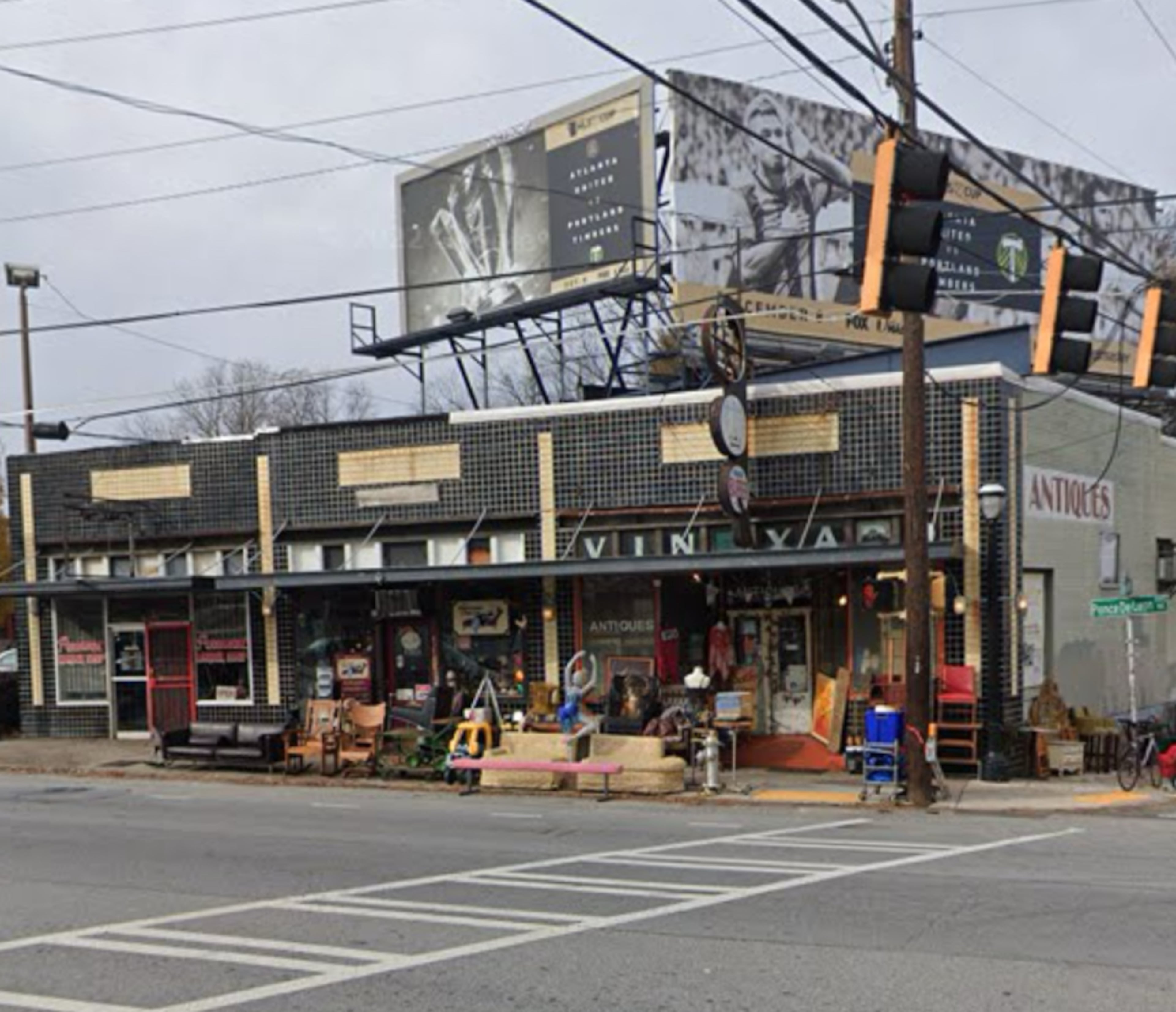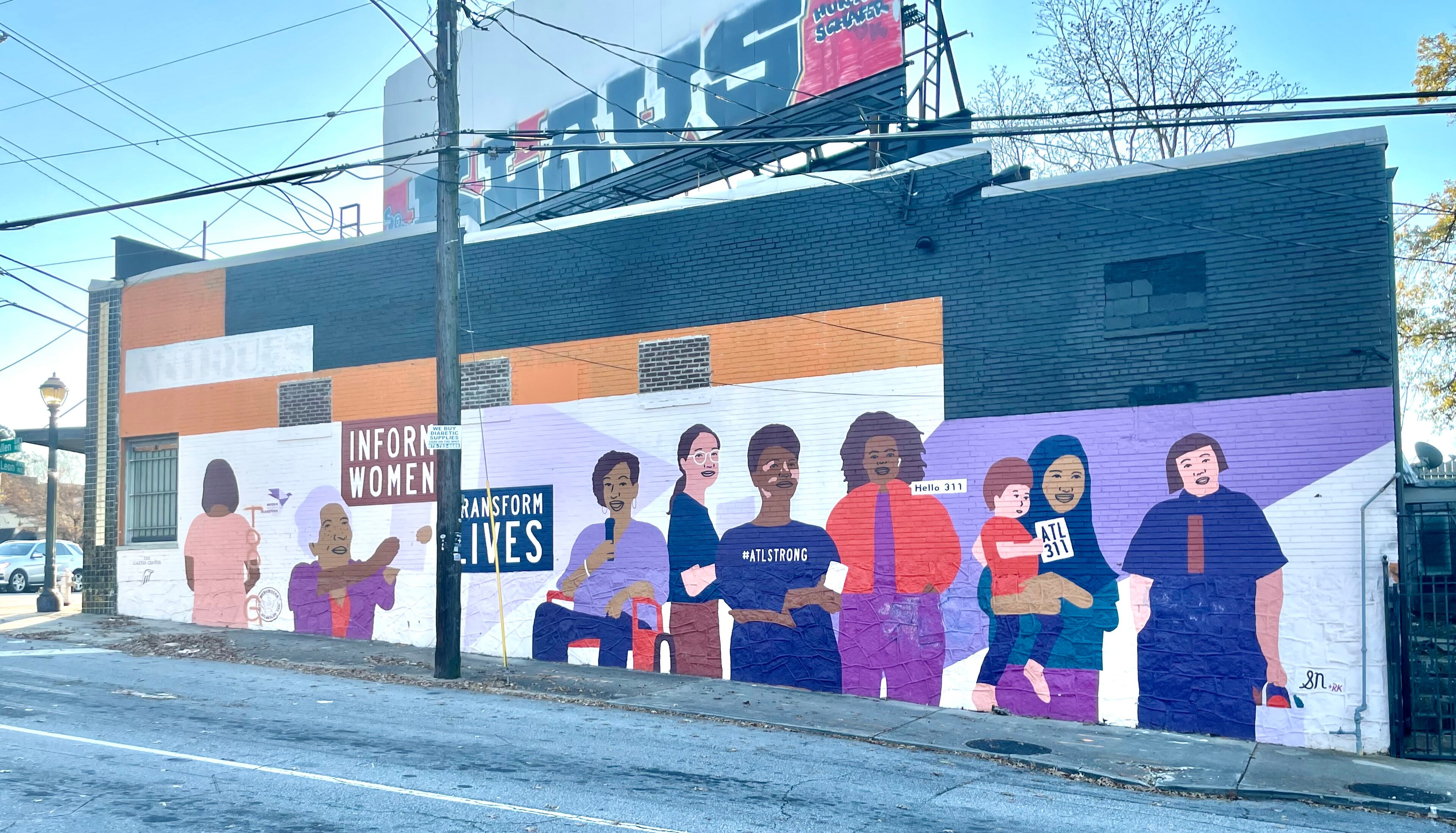OPINION: Iconic Ponce corner gets reboot as street gets new life

Cities have an ebb and flow, with businesses and establishments creating a civic fiber, a sense of community and place. Then they move on.
At the corner of Ponce de Leon Avenue and Charles Allen Drive a distinctive black-tiled building has been a memorable oddity for decades. It used to feature a mannequin sitting outside on a couch. Now, it’s in reset mode.
With change, there are often casualties. In this case, it’s two longtime, family-run businesses, a shoe maker and an apparel shop. In operation for decades, both have cultivated wildly loyal constituencies but are now set to move as the building’s new owner fixes things up.
The customers are sad and grumble aloud that things are changing. And they are. That’s the cold, hard truth of real estate and business. The new owner’s plans for the place are undetermined.
The corner is just a third of a mile west of the wildly popular Ponce City Market, which has blossomed because of the adjacent Beltline. But proximity doesn’t always ensure success.

Ponce de Leon Avenue has always been an idiosyncratic thoroughfare that didn’t bend to what Atlanta’s development community envisioned.
In 2010, I visited a now-gone business, The Fainting Couch, on that same corner and spoke with the owner about the stubbornness of Ponce to adhere to capitalistic “normalcy.”
Then-owner Joe Williams had for years hoped Ponce might become the center for commerce it had once been. But on that afternoon, he pointed out the evidence of drug use and the unhinged behavior of some of the people who congregated around the area that made operating his furniture and kitsch joint a challenge.
Across the street, he said then, drug dealers felt so comfortable conducting business out in the open that they set up a couch on the sidewalk.
Oddly, it was Williams’ couch, the one placed outside to show motorists his wares, that caught city officials’ attention. It was blocking the sidewalk, they said.
In 2019, Williams sold the building that had been in his family since 1961. The listed sales price: $1.8 million. He was in his 70s and it was getting tougher to deal with knuckleheads. Although he said the area seemed to be finally changing for the better.
Around that corner in that same series of buildings, on Charles Allen Drive, is shoe repairman Chae Cho, who in 2010 told me he sometimes felt like a sitting duck. In 2006, the diminutive shoemaker suffered a savage beating from someone wielding a pipe.
“A big guy, a drug guy,” Cho told me. “His eyes were gone.”
Cho, who is 75, still rents that space and feels safer now. But he doesn’t know how long he has left in the shop he has occupied since 1985.
“Anytime they say I’m out, I’m out,” he said this week. He expects the heave-ho soon. When that happens, he figures that’s it. The shoe repair business is drying up and, besides, it’s hard for septuagenarians to start over.
Two doors down is Midtown Alterations, run by Jae and Jung Cho, no relation to the shoemaker. (The families are both from South Korea, as it turns out). Their business has been in that space for decades and has received a letter telling them to leave. They are closing this month. The iffiness of Ponce, and the accompanying reasonable rents, have allowed the two businesses to carve out their longtime niches.
Midtown Alterations still has a steady stream of customers wandering in seeking hems, alterations and clothing repairs. Recently, longtime customer Maria Balais saw the notice that the shop is closing and offered to help.
“Do you want to fight this? Or do you want to find another location?” she recounted asking the couple.
Mrs. Cho put her on the phone with the couple’s son, who translated. The Cho family conferred for several minutes in Korean. Finally, they got back with Balais, telling her they have “decided to view this as a chance to retire. They feel they are too old to start over some place else.”

This week, Mrs. Cho did not seem ready for retirement. “I am working; I feel so lucky. I am lucky working,” she told me.
Their son told me they are reevaluating their decision to call it quits.
The property, with its small spaces and relatively cheap rent, has been somewhat of a business incubator for years — a barber shop, a lingerie shop, a mini convert venue, a print shop, among other things.
In 1999, an artist and former divinity school student named Grant Henry opened “Sister Louisa’s Whimsical Art and Antiques” between the shoemaker and the alterations shop. It was there, in his cramped studio, where he came up with Sister Louisa’s Church of the Living Room & Ping Pong Emporium, an Edgewood Avenue bar that is now one of Atlanta’s most popular haunts.
“I love Ponce; I love the grittiness,” Henry said. “I love how it’s an epicenter of reality. Ponce is the soul of Atlanta.”
Now, the front three businesses on Ponce have been renovated but are not occupied. A large colorful mural down the side of the building says, “Inform Women. Transform Lives.”
The registered agent for the LLC that now owns the building did not respond to a request for comment about future plans. But it sits ready for its newest incarnation.



